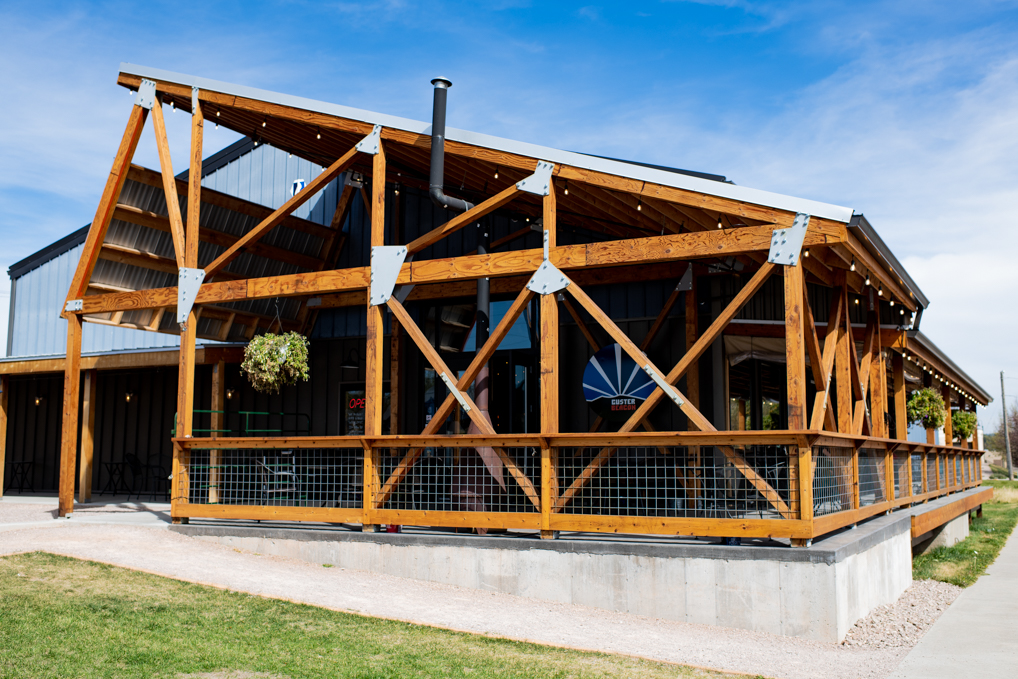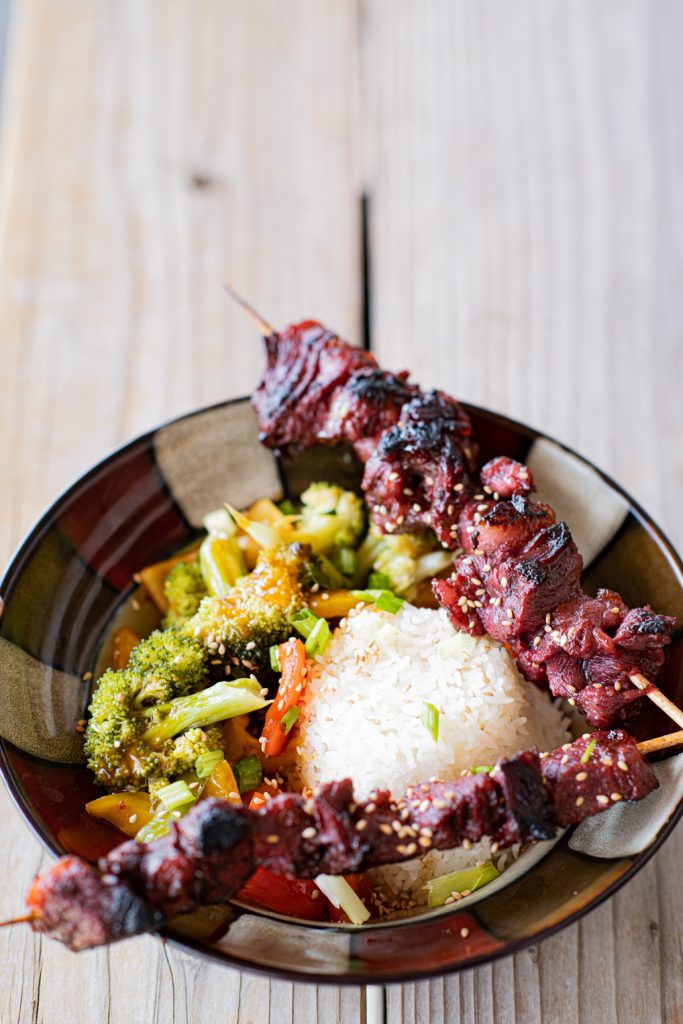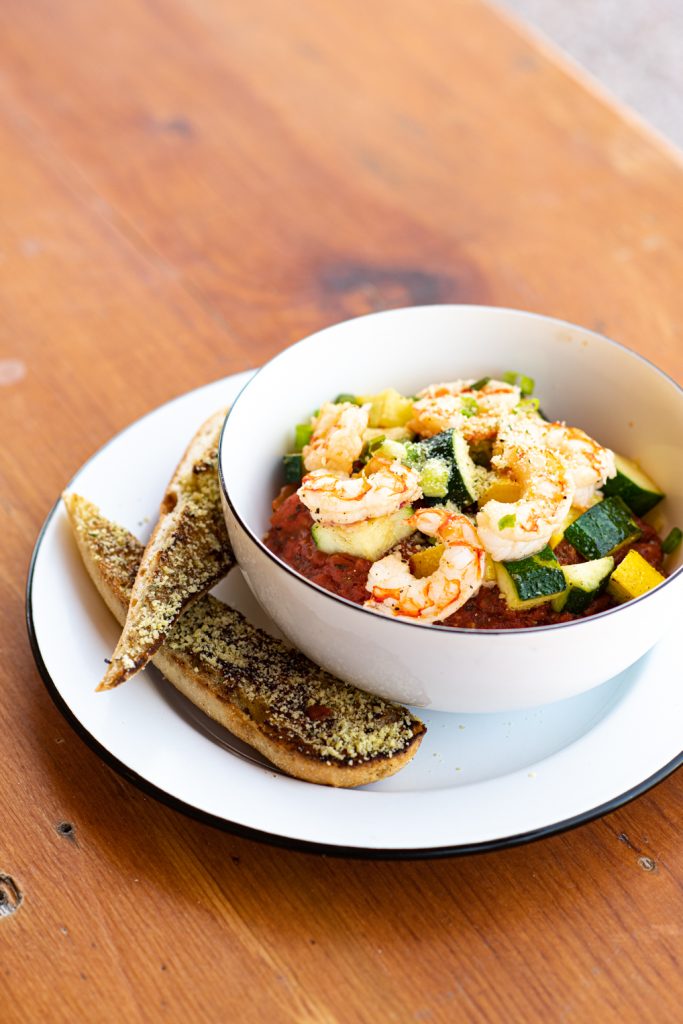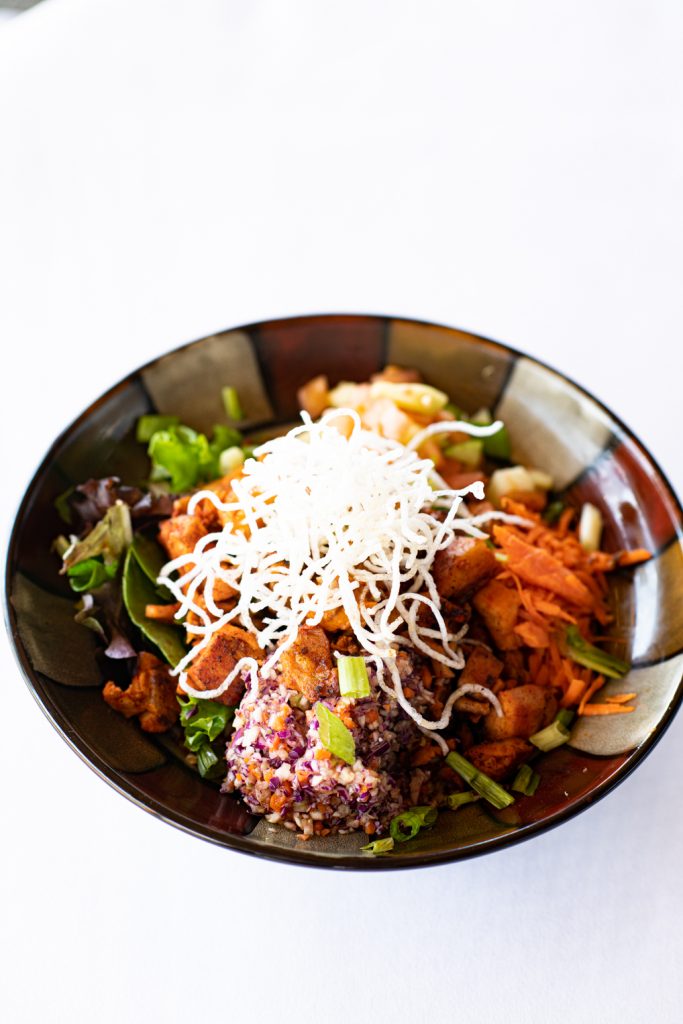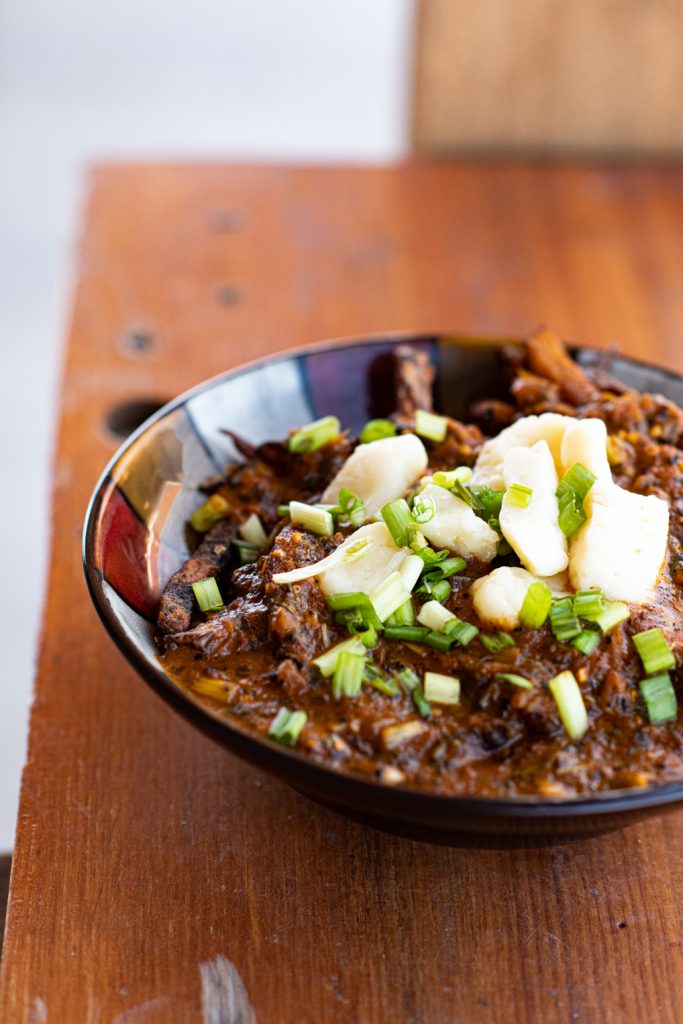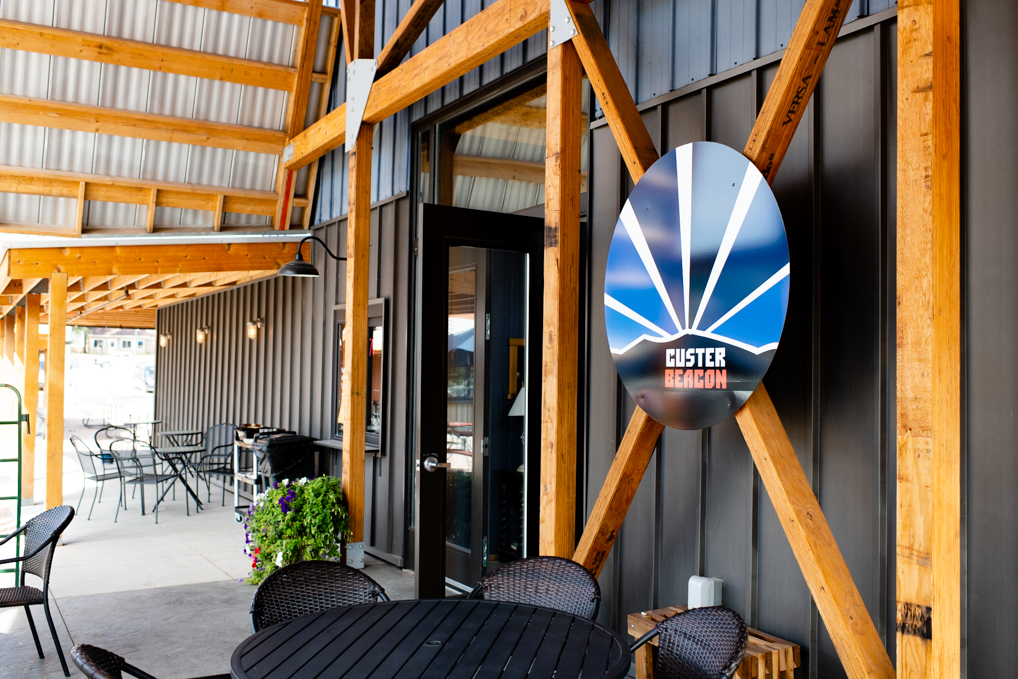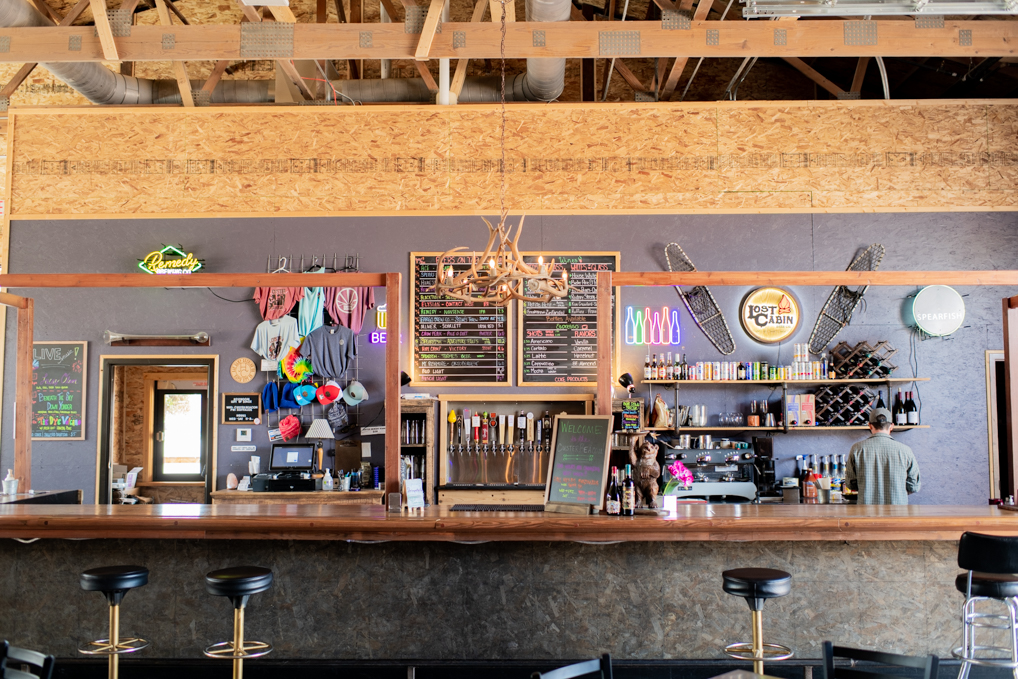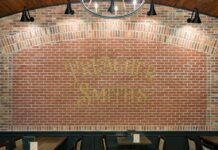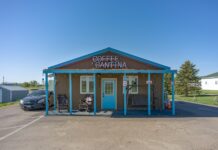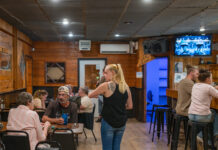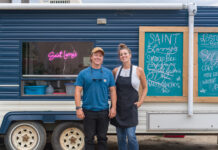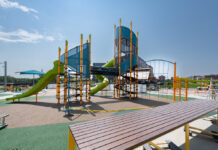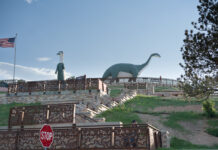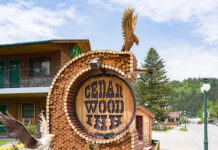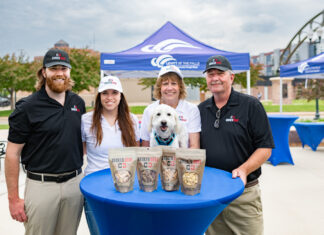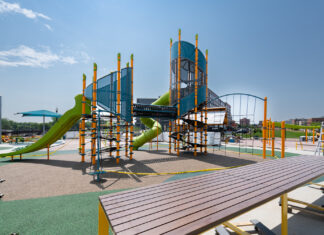Not long ago, Minneapolis native Louis Umbarger found a photograph of himself and his father taken near downtown Custer during a family vacation in the ‘90s. Poking through the picture’s edge is the corner of a steel warehouse that belonged to his grandfather, who owned Pacer Minerals south of town. During the mid-20th century, the warehouse served as a loading dock for trains that shipped ore via the track that is now part of the George S. Mickelson Trail.
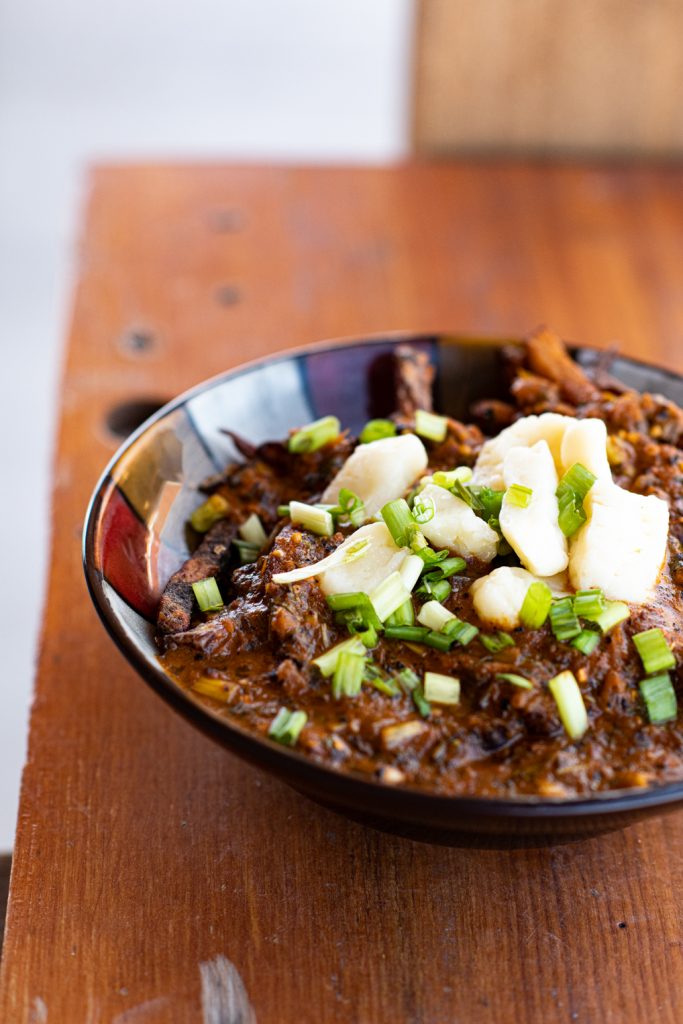
Two decades later, that warehouse now supplies Custer with ample entrées, local brews and live music under its metal roof. It’s both a gathering space for Custer and an undertaking that beckoned Louis’ family back to the Hills.
A beacon, if you will.
“We had all these grand ideas for the community, but close to home, it was drawing our family back together after decades of living elsewhere,” said Louis.
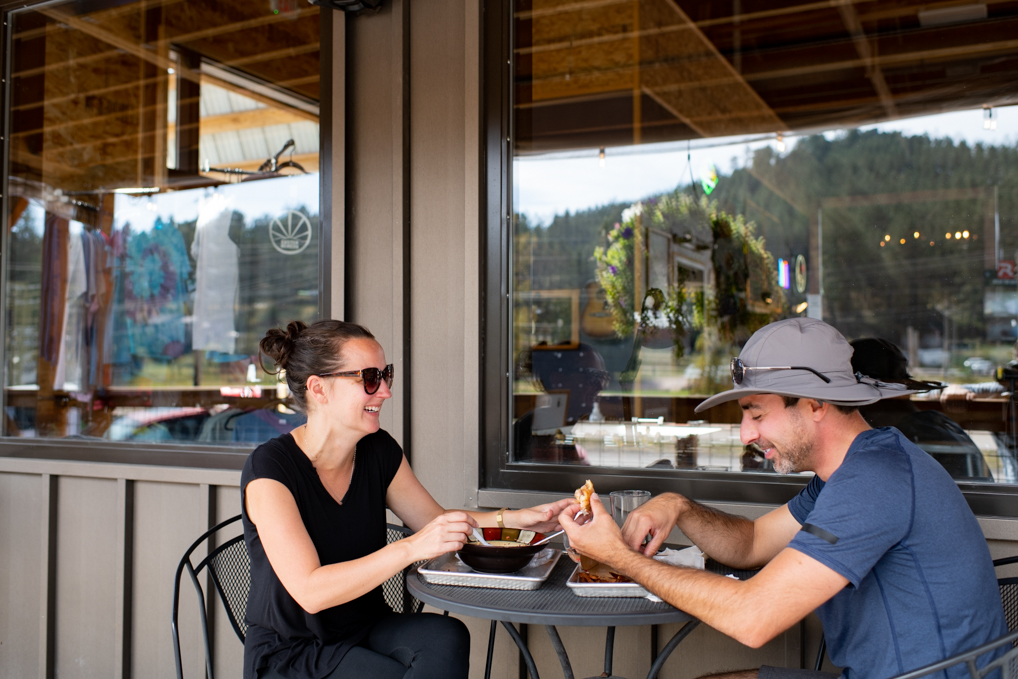
“One way we described it was this idea of ‘third space.’ People have home. They have work. And then there’s a ‘third space,’ a place on neutral ground to be with people and play and eat together and dance. As we grew up with Custer the past 20 years, we noticed there wasn’t a space like that here. That’s grown into the Beacon and all that it is.”
The Custer Beacon began as a compromise.
In 2015, Louis was living in Portland, OR, where he’d just graduated with a music degree from Lewis & Clark College. His older brother, Charley, taught at an art school in France, and their mother—who’d taken over Pacer’s ownership—was bounced between Minneapolis and Custer. That year, she decided to sell the company and all its assets except for the warehouse.
“We were scattered around the world,” said Louis. “Charley wanted to start a restaurant but was hesitant to move from France to South Dakota. I wanted to start a concert space but thought a restaurant was out of my wheelhouse. My mom wanted a community center but was insistent she didn’t want to own a bar.”
So in 2018, they meshed parts from all three ideas and created, in Louis’ words, a “restaurant-bar-music-thing.”
They equipped it with a sleek kitchen, 16 taps of Black Hills brews, and a professionally arranged stage. They fashioned pool and shuffleboard tables among a floor of living room furniture and dining setups, then outlined it all with a patio and picnic area.
Look up—exposed trusses. Look down—polished concrete.
Sounds like a buddy’s garage, right? That’s what Beacon-goers felt in the early days when Louis started hosting small concerts and selling Bud Light from coolers of ice.
Sound of the Stage
In college, Louis studied how to make music. Post-graduation, he’s learned how to showcase it with user-friendly
stagecraft and audio engineering.
“The stage was built by artists, for artists,” said Louis about the Beacon’s stage. “If you ask anyone who’s played here,
they’ll tell you it’s one of the best rooms in the Hills.”
Since 2018, Louis has made the Beacon’s stage one for local artists. The Beacon hosted 40 shows during the summer of 2020 alone. Louis wants to revive the big-act party scene that Custer touted in the ‘90s.
Since then, they’ve added a fresh floor, new fences, new doors, and a smoker rig, adding some shine to a homespun space. But Louis was adamant about retaining the rustic, cozy, familial environment.
“We’ve tried to keep the Beacon as authentically Custer as we could,” he said. “People in this community have all laid hands on it as we’ve built it, so there’s a sense of communal ownership that draws people in.”

Seven Hours from Everywhere
In 2019, the Beacon hosted a regional competition for the U.S. Air Guitar Championships, which put Custer alongside other host cities like New York City, San Francisco, Houston, Denver, Chicago, and Boston. As ridiculous as it may seem, Louis said it turned out to be one of the craziest nights at the venue.
“That’s been fun for us—inviting artists to Custer who wouldn’t have stopped here otherwise. I feel like we’re getting closer to that threshold of inviting bigger names,” said Louis. “Custer is seven hours from everywhere. It’s the perfect layover destination for a touring band that’s between Minneapolis or Bozeman or Denver or Lincoln. I want the Beacon to be that spot.”
Custer, however, did not influence the Beacon’s food.
Last year they brought on an esteemed kitchen lead, Vince Marsh, who has a background in Texan barbecue and is well-versed in a variety of worldly foods.
To meet Custer in the middle, the Beacon offers cultured dishes like Curry Poutine and the Cubano alongside elevated Midwestern staples like the Dakota Dip and Pink Bison Skewers. Shrimpatoullie and Chicken Tendies share the same section of the menu.
“It was a weird year to come of age as a restaurant, with limited ways to gather, so we pivoted to focus on food,” said Louis. “The silver lining of the COVID-19 situation was us establishing ourselves as a restaurant.”
He continued, “A lot more people are coming out for lunch and dinner even when there’s not entertainment.”
The menu includes items like Burger Bombers, Curry Poutine, a Cubano, a Power Bowl, Shrimpatouille, and more.
It’s common practice for Black Hills businesses to hibernate: flourish during the summer tourist rush, then close doors as leaves turn yellow. But Louis and his family didn’t build the Beacon with tourists in mind. It’s open year-round for a reason.
“We’re a place for Custer,” said Louis. “To be able to move here from our various exploits in the world and have the community accept us wholeheartedly — I couldn’t ask for a better place to grow up in and be part of. We love this little town.”
For more information, visit custerbeacon.com.


